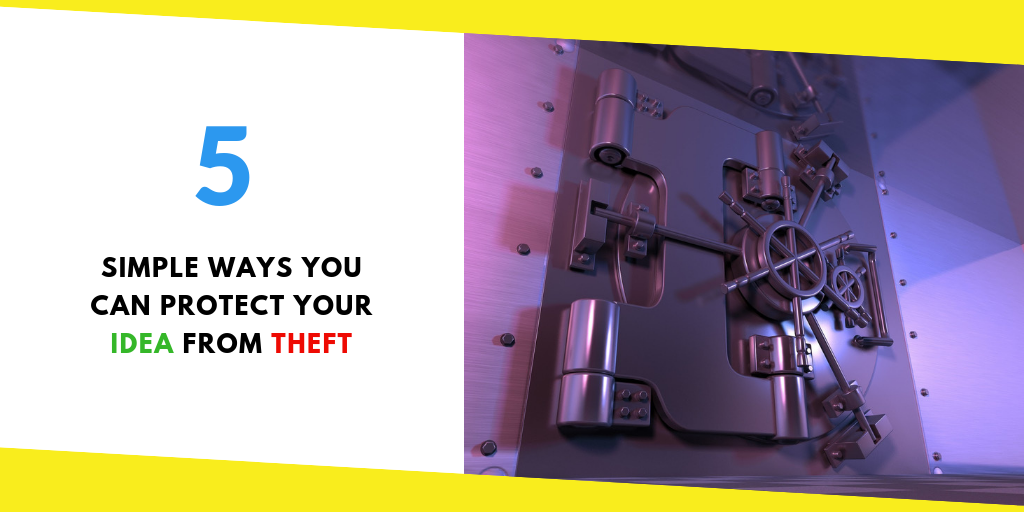5 Simple Ways You Can Protect Your Idea From Theft
A great idea can bring your business to a whole new level. However, your idea doesn’t help you unless it’s protected. Someone else could use your idea to their own benefit. By using one of the following five strategies, you can keep your idea secure.
Contents
Toggle1. Get a Non-Disclosure Agreement
There is one simple way to protect your idea – don’t talk about it. Or, at the very least, limit talking about the details. If you need to pitch the idea to someone, don’t get into specifics. For example, only give a general overview of your idea.
Of course, sometimes this is impossible. If you’re meeting with investors, they will want to know the details. They won’t offer you money unless they have all of the answers to their questions. But there is a way to secure your idea. A non-disclosure agreement could keep your idea safe. By asking investors or other individuals to sign the agreement, you lessen the risk of someone taking off with your concept.
2. Seek a Provisional Patent
Is your idea a new invention? If so, you could apply for a provisional patent. This type of patent gives you temporary protection of your idea.
However, not all ideas are eligible for a patent. For one, only ideas that are novel and nonobvious can be patented. You also need to have your idea well-planned — words aren’t enough. If you have a prototype or design artwork, you might be eligible for a provisional patent.
Keep in mind that a provisional patent only gives you 12 months to develop your idea. If you aren’t ready for a full patent after one year, you lose rights to your idea. A patent lawyer in Orlando can advise you on whether or not a patent is a good idea.
3. Apply for a Trademark
A trademark cannot protect an idea. However, it can protect a business name or logo. In some cases, getting your business name protected helps keep your idea secure.
Your trademark request gives you legal documentation that your business idea was already in progress. If someone else tries to argue that you stole their idea, this documentation is in your favor.
4. Consider Copyright
You can’t copyright an idea. However, you can copyright an element of an idea. Consider this example. After you have an idea for a new app, you start writing code for it. If you successfully obtain a copyright for the code, no one else can use that code. Someone can still steal your idea, but they must create their own code.
If you apply for a copyright, you need to do so carefully. Only attempt to copyright writing, software, pictures, video, or something similar. You can contact a patent attorney in Orlando to learn more about copyright law and how it relates to your idea.
5. Leave a Paper Trail
If you want proof that an idea is your own, leave a paper trail. Keep track of every conversation you have about your idea. Furthermore, keep copies of any signed non-disclosure agreements.
Do everything you can to have a legal record of your idea. Therefore, file for a trademark, copyright, or patent when possible. The more documentation you have, the more proof you have that the idea was yours.
Although there’s no way to ensure protection of your idea, there are ways to decrease your chances of theft. If you follow some of the strategies above, you might be able to keep your idea contained.
Recommended For You
How Does Tax Work on Your Possessions After You Pass Away?
Most Inside
Most Inside offers high-quality recommendations and valuable updates to enhance all aspects of your life, providing premium guidance and enriching experiences.





